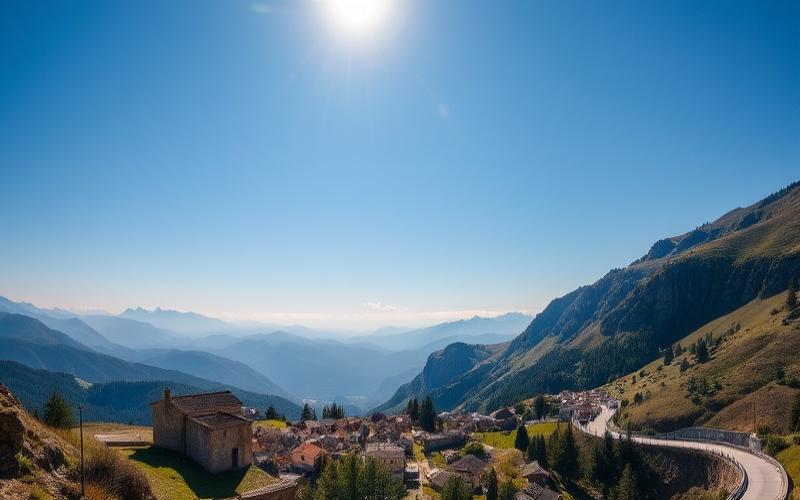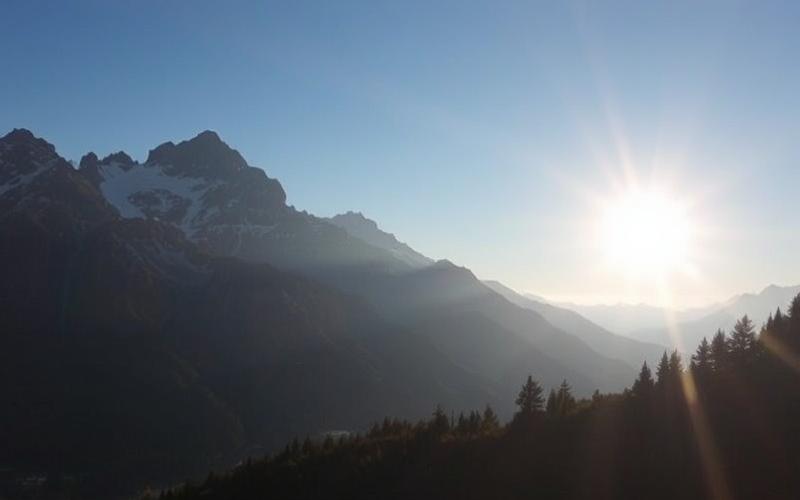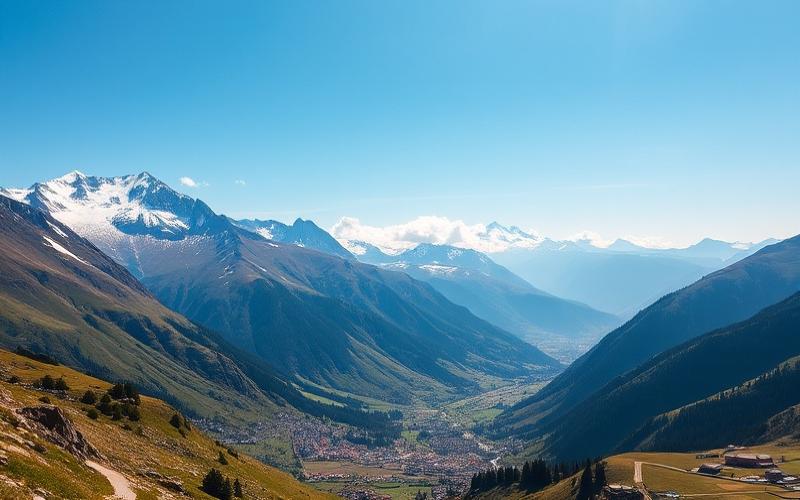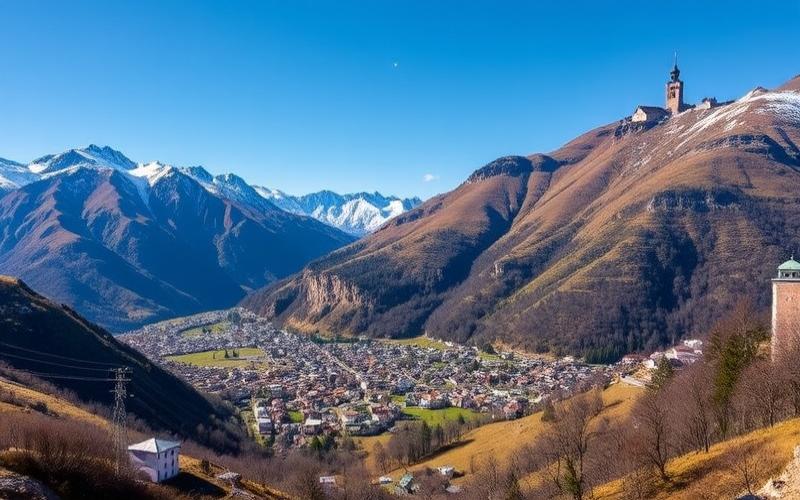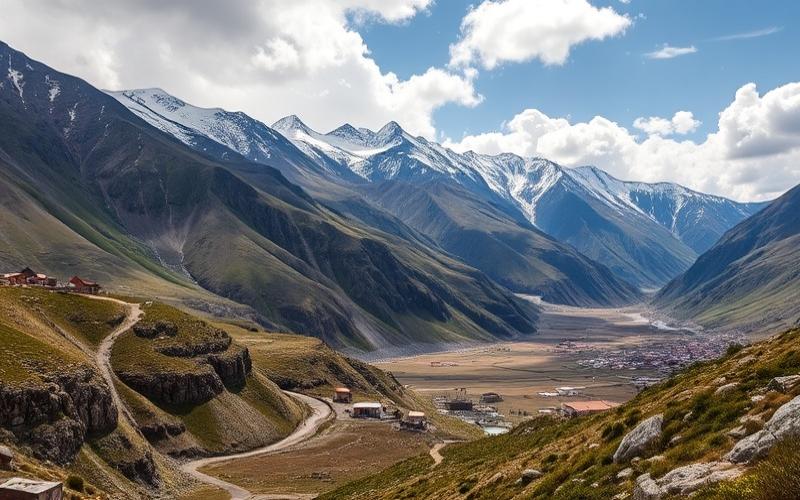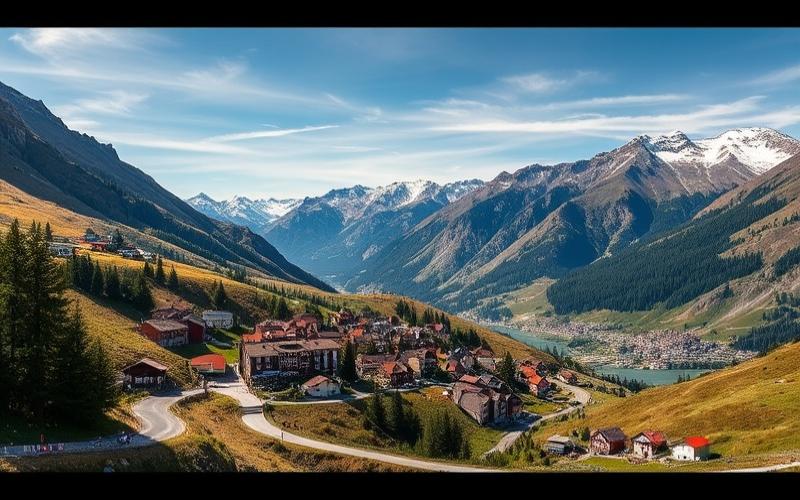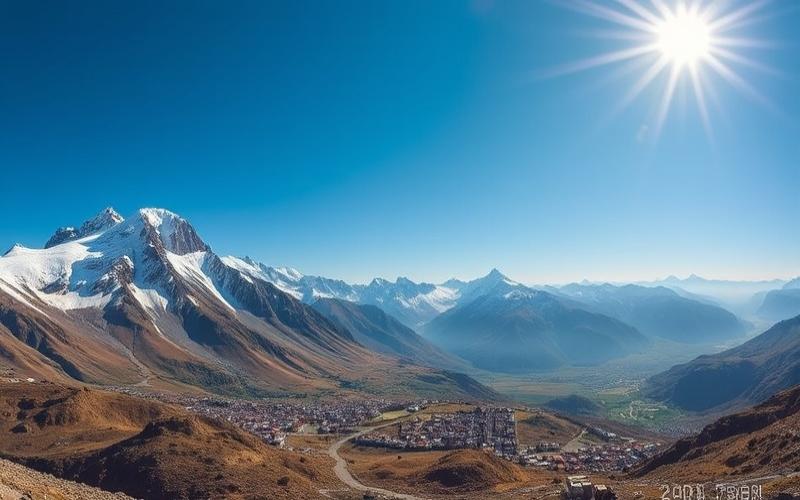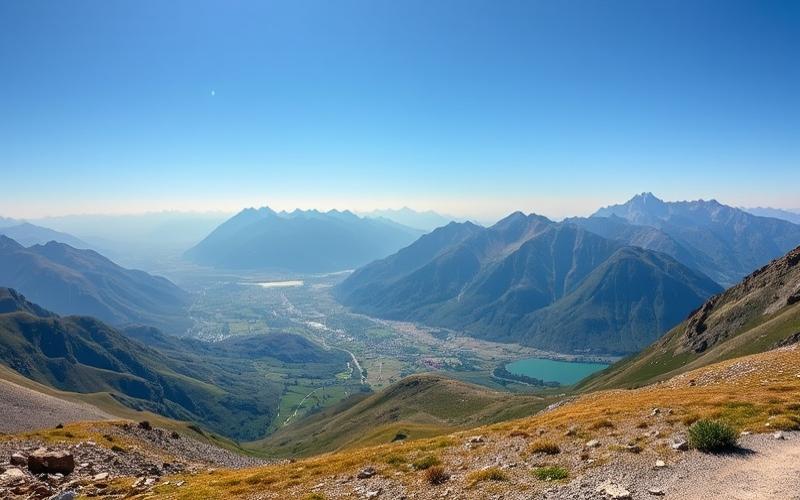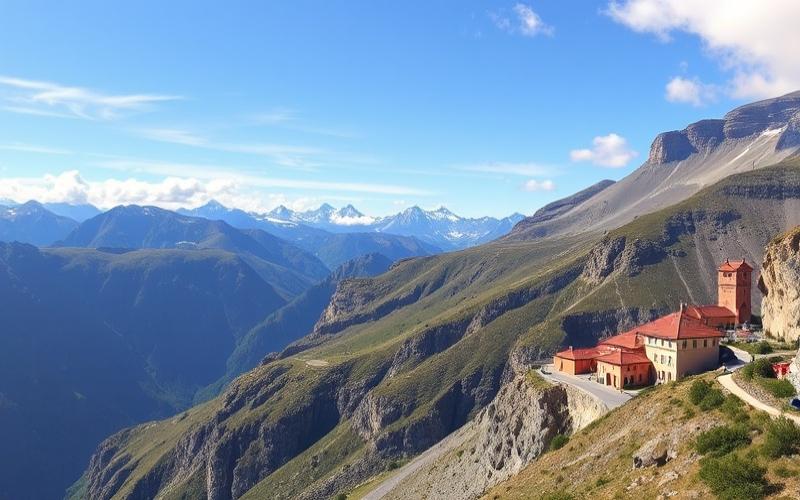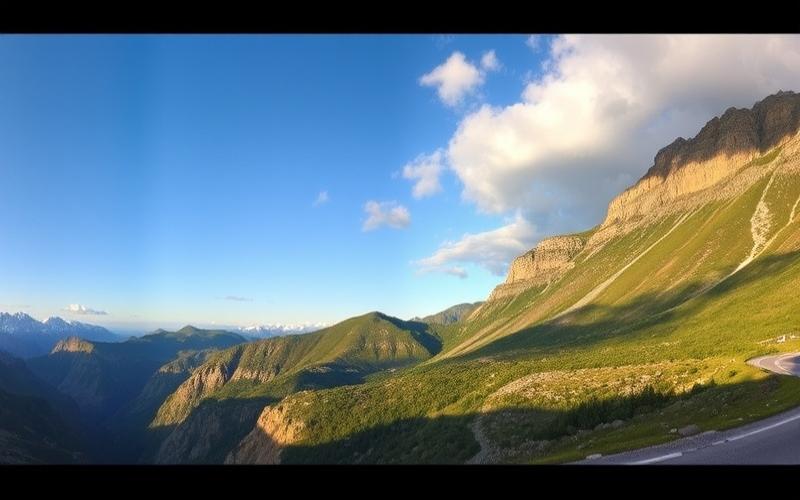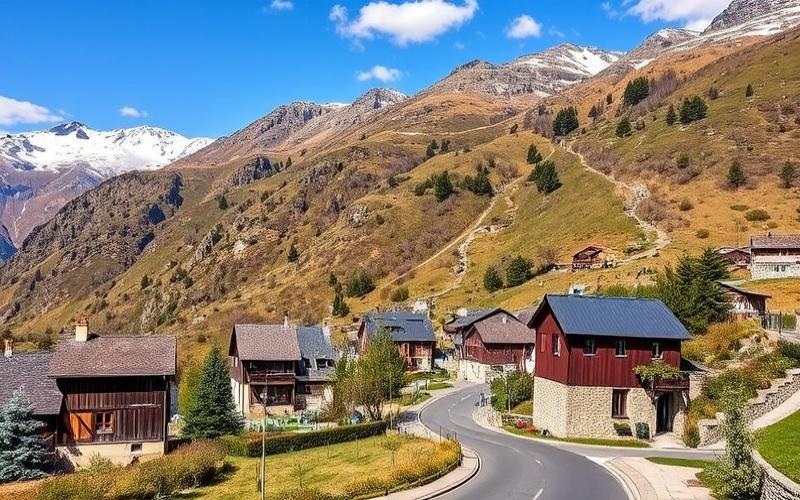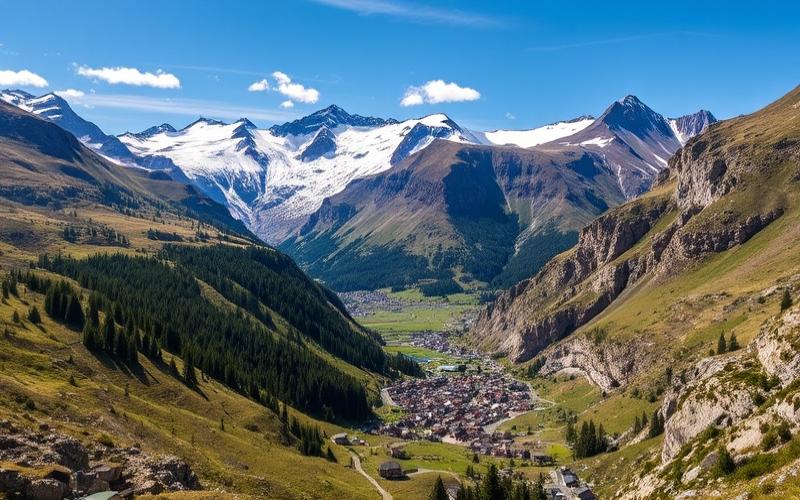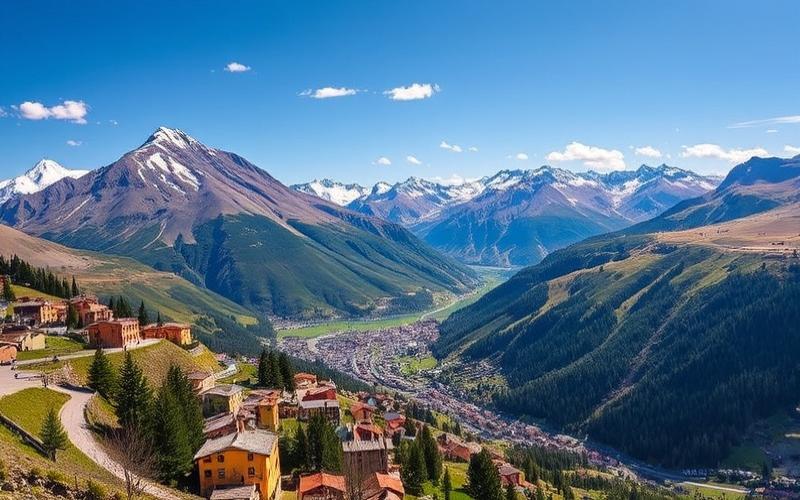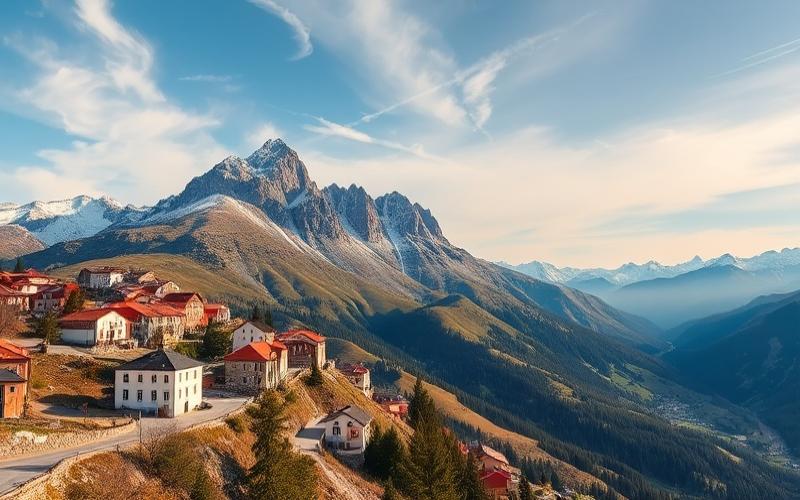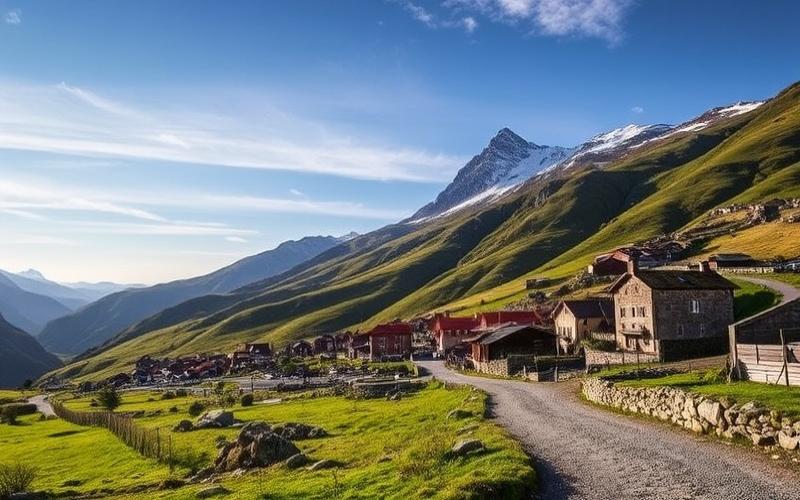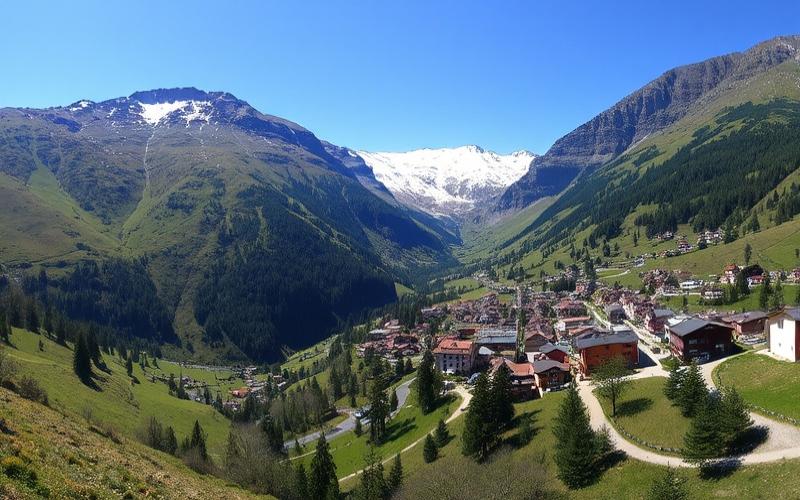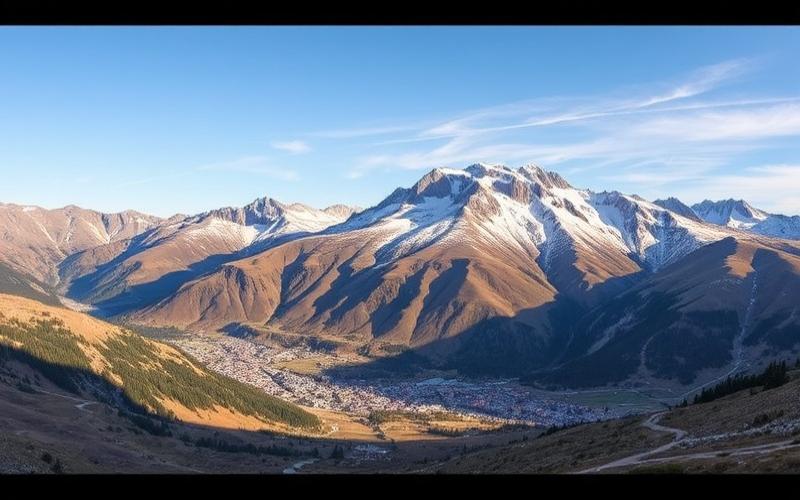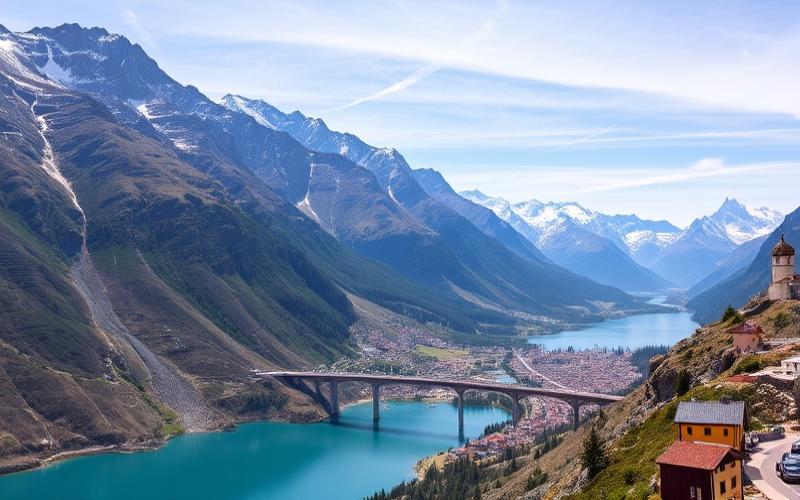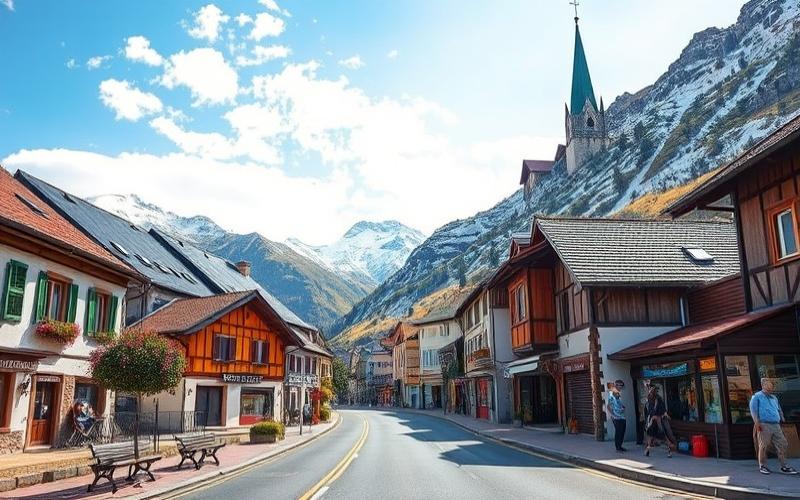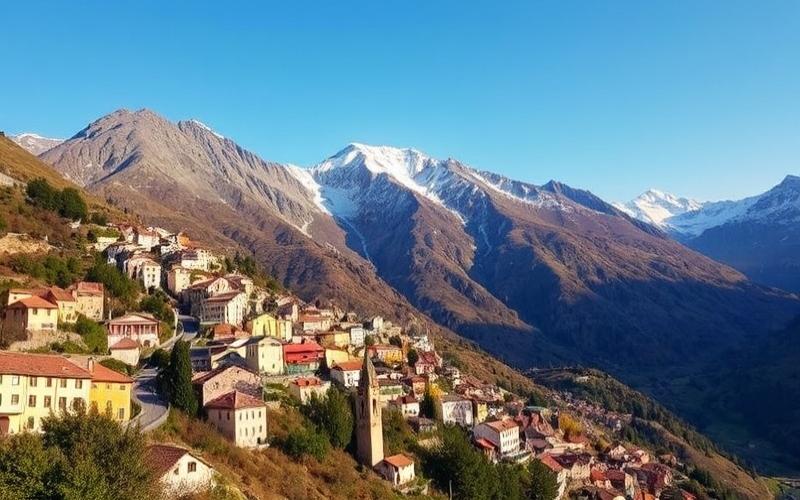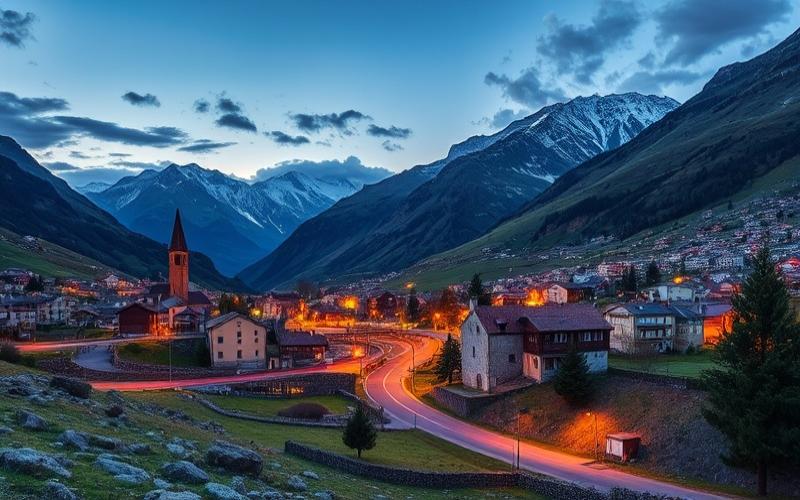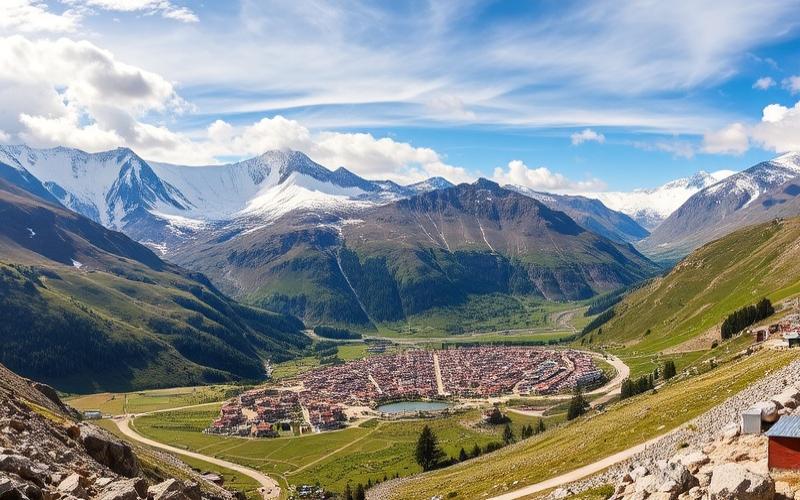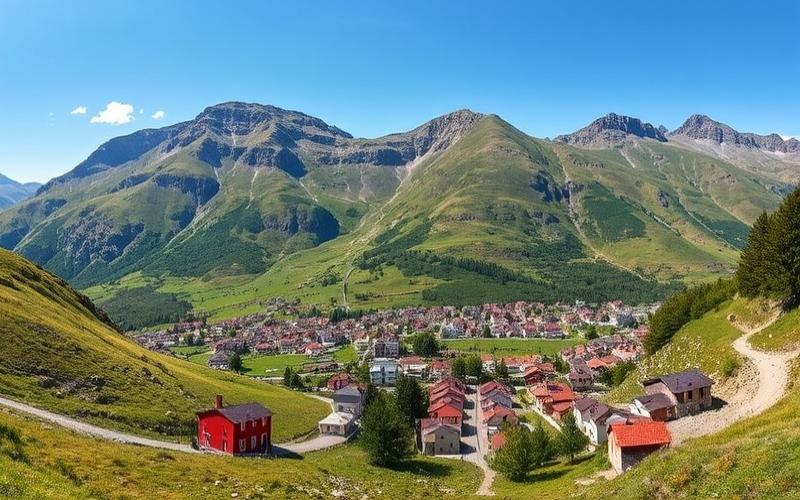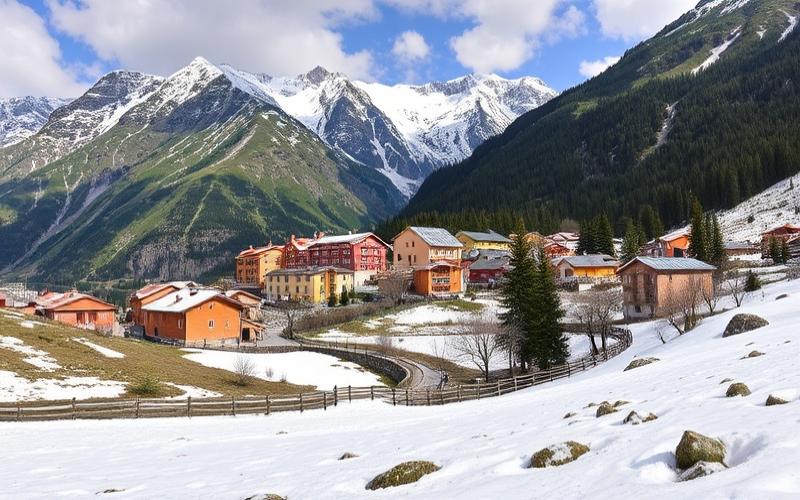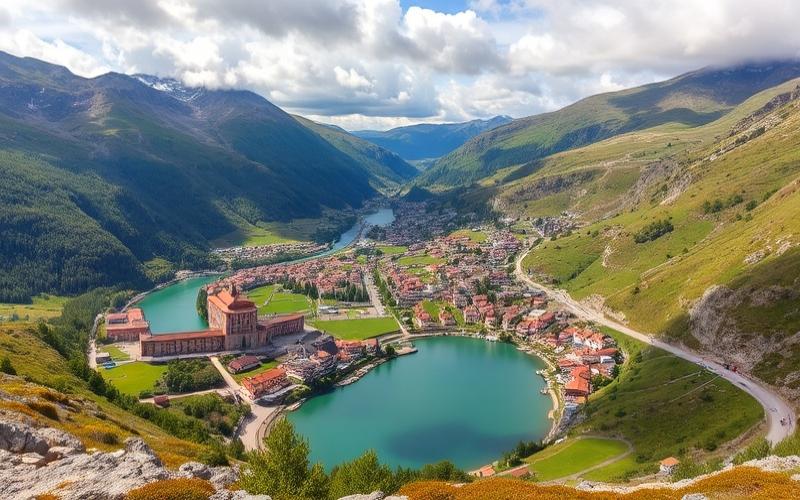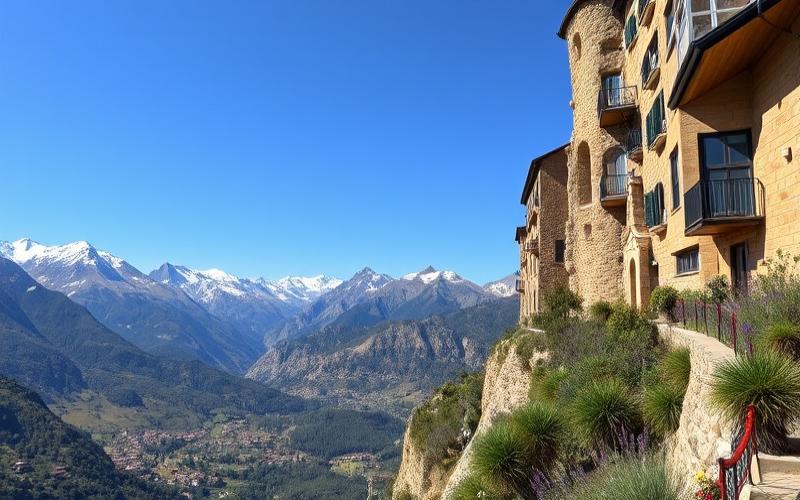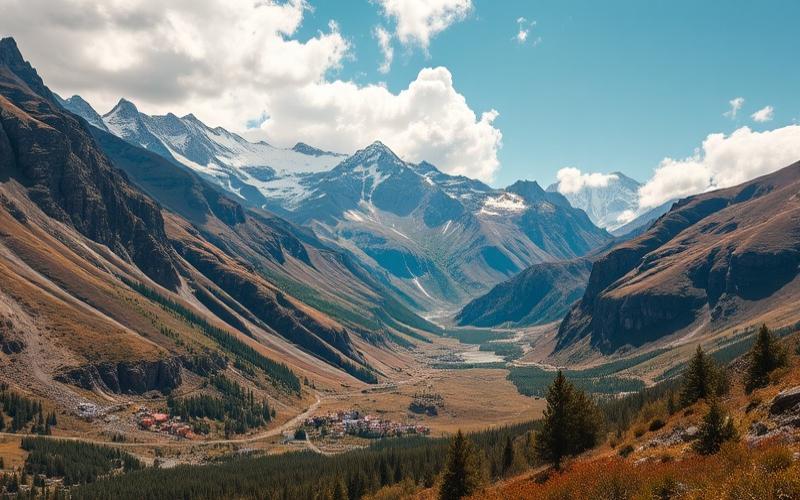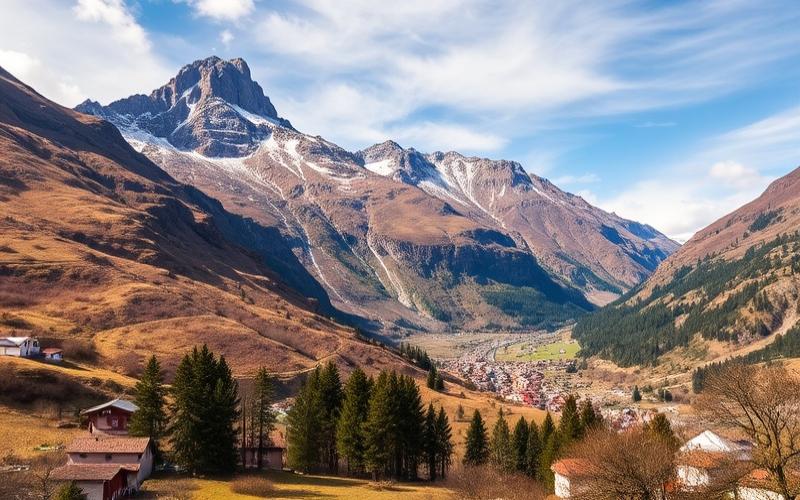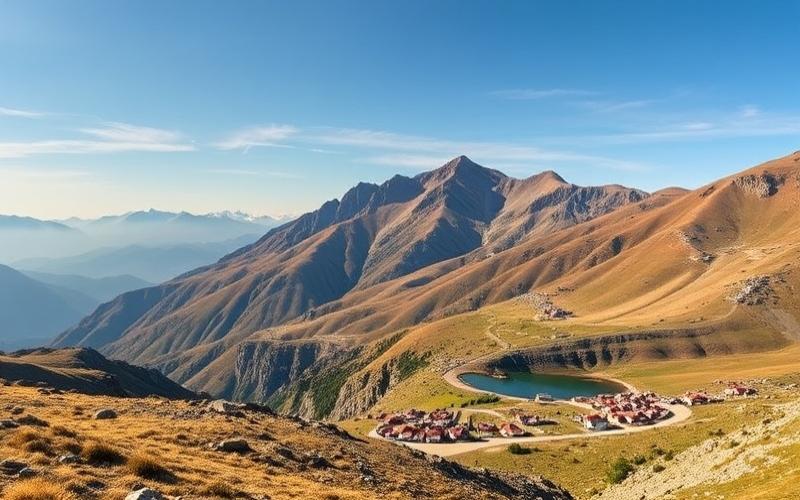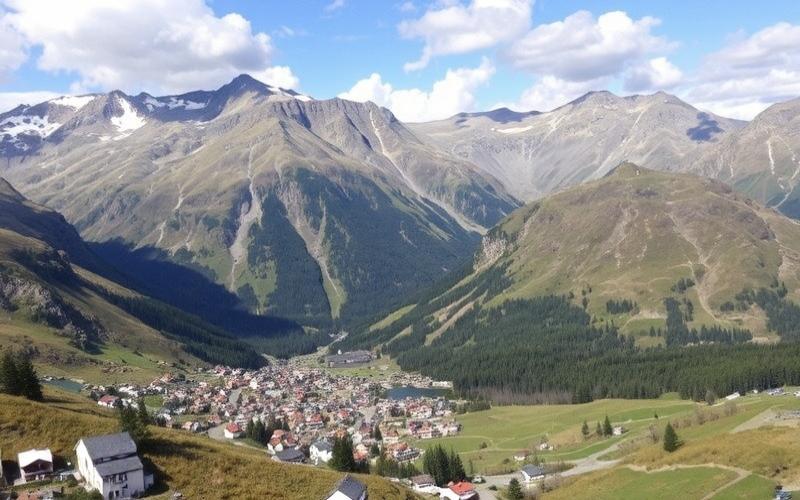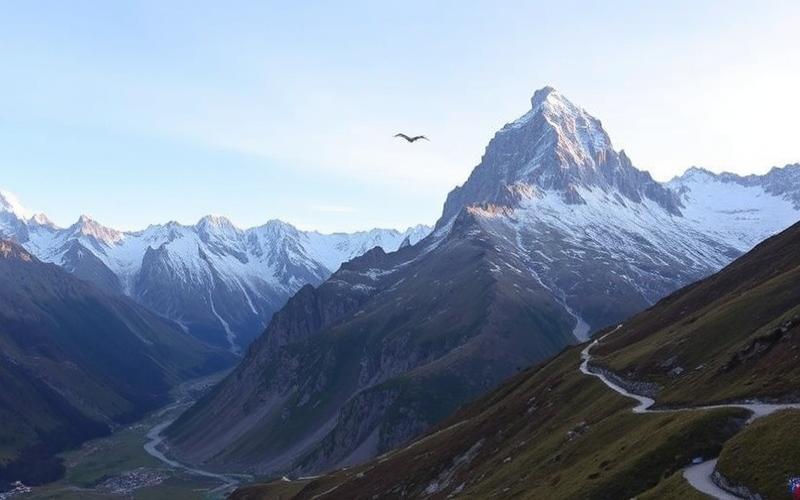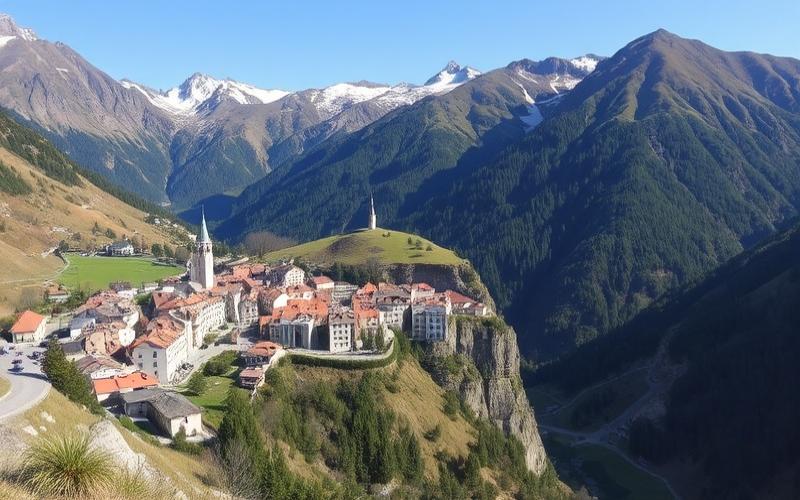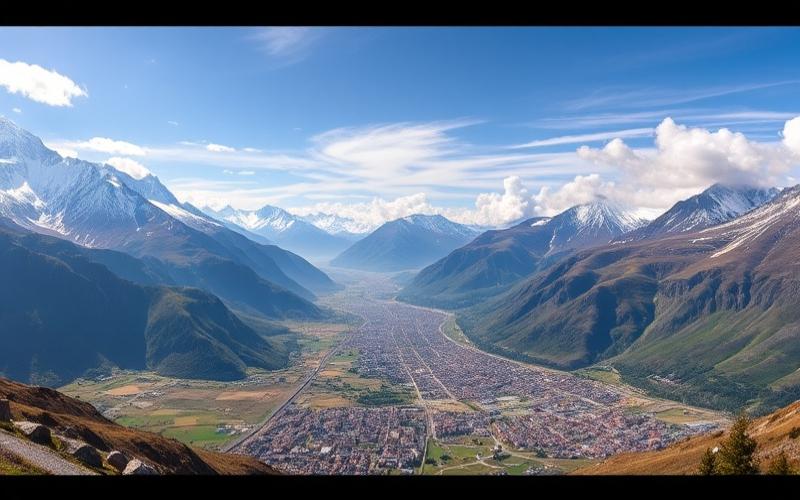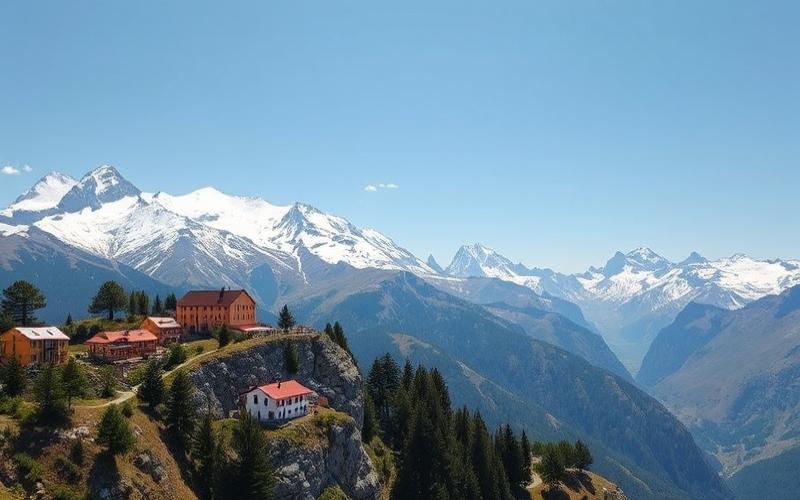
 Published on and written by Cyril Jarnias
Published on and written by Cyril Jarnias
Buying Agricultural Land in Andorra
Andorra, a small country nestled in the Pyrenees, can be a strategic investment for agriculture enthusiasts or those looking to diversify their assets. However, understanding the legal subtleties is crucial to making this purchase safely.
From specific regulations regarding foreign ownership to building permits and knowledge of protected agricultural areas, it’s essential to be well-informed to avoid pitfalls and ensure the success of your acquisition.
This guide provides a clear and detailed overview of the purchasing process, allowing you to undertake this step with complete peace of mind.
Good to Know:
Agricultural land in Andorra is subject to strict rules regarding its use and acquisition by non-residents. It’s advisable to consult a local expert before committing.
Overview of the Legal Framework for Buying Agricultural Land in Andorra
Legal Framework and Specific Restrictions
Since 2012, non-residents can purchase real estate in Andorra, including agricultural land, but prior authorization from the Andorran government is mandatory.
- Specific restrictions exist for purchasing agricultural or forest land, and for large properties (generally over 900 m²), requiring additional steps and specific authorization.
- In certain protected areas or those subject to urban planning, additional rules may apply.
- Full ownership (land and building) is the standard in Andorra.
| Buyer Status | Purchase Right | Main Restrictions | Authorization Required |
| Andorran Resident | Yes | Protected areas, large areas | Yes (for certain properties) |
| Non-Resident | Yes since 2012 | Agricultural land, areas >900 m², protected zones | Yes (mandatory) |
Legal Acquisition Procedure
- Land search and negotiation.
- Signing a preliminary contract (deposit contract).
- Application and obtaining government authorization for purchase by a foreigner.
- Signing the deed of sale before a notary.
- Registering the property in the Andorran land registry.
Relevant Government Entities
- Government of Andorra (for purchase authorization)
- Notary (for signing the deed of sale)
- Property Registry (for property registration)
- Sometimes, municipality or Ministry of Environment (for protected or agricultural areas)
Tax Obligations
Land purchase is subject to a real estate acquisition tax. It generally starts at 3% for the first property, with progressive rates for additional acquisitions (5% then 8% beyond certain thresholds).
Other fees may apply: notary fees, registration fees, and possible stamp duties.
| Number of Properties Acquired | Tax Rate |
| 1st land | 3 % |
| 2nd to 5th property | 5 % |
| 6th to 9th property | 8 % |
Buyer Rights in Case of Dispute
- The buyer can appeal to Andorran courts in case of dispute or property conflict.
- Using a local lawyer is strongly recommended to protect one’s interests.
- The notary and land registry play a key role in securing ownership and resolving registration conflicts.
Recent Legislative Changes
In 2024-2025, Andorra strengthened regulations on certain types of properties, notably with the bill for sustainable growth and housing rights, mainly impacting tourist accommodations (ban on new licenses and expiration of old ones within 3 years). To date, no major reform specifically targets agricultural land, but the trend is towards increased land monitoring to preserve the territory.
For agricultural land, restrictions for non-residents remain mainly administrative (prior authorization) and aim to protect agricultural and forest areas.
Key Points List for Foreign Buyers
- Check the land classification (agricultural, forest, protected).
- Obtain purchase authorization from the government.
- Plan for tax and administrative fees.
- Engage a local professional (lawyer, notary).
- Ensure correct registration in the land registry.
- In case of dispute, appeal to competent local jurisdictions.
Note
The Andorran legal context evolves regularly, especially under pressure from real estate growth and the need to protect natural heritage. Therefore, it’s advisable to check the most recent legislation before any transaction.
Good to Know:
In Andorra, the purchase of agricultural land is governed by the Llei de Sols, which imposes restrictions on non-residents, who often require government authorization to acquire rustic land. The formalities include registering the notarized deed with the Property Registry and paying taxes such as the IGI (Impost General Indirecte) plus registration fees. Agricultural transactions may be subject to controls by the Ministry of Agriculture to ensure compliance with local laws. In case of dispute, buyers can turn to the Andorran Court to resolve property conflicts, benefiting from a protective legal framework. Recent legislative changes aim to encourage foreign investment while preserving agricultural spaces, thus facilitating certain procedures for savvy investors.
Understanding Rural Zoning and Restrictions in Andorra
Rural zoning in Andorra refers to the set of rules that determine the possible uses of agricultural land, their protection, and development conditions. It mainly aims to preserve rural spaces, regulate urban development, and ensure sustainable land management.
Significance for Agricultural Landowners:
- Zoning determines whether a plot is intended for agricultural, forest, or natural use.
- Owners must respect these designations under penalty of administrative or criminal sanctions.
- Zoning impacts land value, the possibility to build, and exploit the land.
Main Rural Zoning Categories:
| Category | Main Use | Main Criteria |
|---|---|---|
| Agricultural Zone | Agriculture, livestock | Soil agronomic quality, irrigation |
| Natural Zone | Ecosystem/landscape protection | Ecological/landscape value |
| Forest Zone | Forestry/forest conservation | Tree cover |
Criteria Defining Each Category:
- Soil quality
- Water presence (irrigation)
- Ecological richness or biodiversity
- Natural risk (flooding/landslide)
- Heritage or landscape interest
Implications for Development and Use:
List of Common Restrictions:
- Construction of residences strictly limited to direct needs of an agricultural operation
- Near-total prohibition of commercial buildings unrelated to agricultural activities
- Need for specific authorizations for any substantial modification (e.g., tourist developments)
Environmental Aspects:
- Obligation to preserve local biodiversity
- Strict prohibition against altering wetlands/protected areas without exceptional exemption
Administrative Procedures for Modifications/Exemptions:
- Submit a motivated request to the competent service (often Rural Planning Service).
- Technical review with possible consultation of environmental services.
- Mandatory or optional opinion from the concerned municipality.
- Formal decision by the competent central or local administrative authority.
In certain special cases:
- Public inquiry required if major transformation planned
- Possible hierarchical appeal in case of refusal
Responsible Organizations:
- Andorran Government: develops national regulatory frameworks on rural planning and ensures overall compliance
- Municipalities/parroquias: issue individual permits and control on-site usage
Legal Consequences of Non-Compliance:
Immediate Risk:
- Outright cancellation of work done without authorization
- Administrative fines proportionate to severity
Aggravated Risk:
- Legal prosecution in case of recurrence/serious environmental damage
- Mandatory demolition of illegal constructions
These rules strongly influence any purchase/operation:
Key Points List When Buying/Farming in Andorran Rural Zones:
- Imperatively check the exact classification in the municipal/parochial plan before any real estate/agricultural operation
- Anticipate restrictions regarding desired future uses (secondary residence impossible except exceptions)
- Plan for administrative delays/complexities for any exemption requests
Strict compliance with rural zoning directly conditions any agricultural or residential activity in Andorran countryside—both economically and legally.
Good to Know:
In Andorra, rural zoning is strictly regulated to preserve agricultural integrity and the environment, and landowners must understand its implications before buying. The country mainly distinguishes between agricultural zones, where only agricultural activity is permitted, and mixed rural zones allowing certain residential or tourist activities under strict conditions. Non-agricultural constructions, like permanent residences or businesses, are often prohibited in pure agricultural zones, and even in mixed zones, they usually require special permits. Significant environmental restrictions also apply, notably protecting local ecosystems, and any development must account for them. To obtain zoning modifications or exemptions, it’s essential to go through complex administrative procedures, generally under the supervision of the Ministry of Urban Planning and local authorities. Non-compliance leads to severe sanctions, including demolition of illegal constructions. Consulting a local land law expert can be crucial to navigate these regulations and optimize the use of your agricultural land legally.
Steps to Obtain a Building Permit in Agricultural Zones
Current Legislation
In Andorra, construction in agricultural zones is strictly regulated by urban planning legislation, whose main references are the General Urban Plan (PUG) of each municipality and the Llei d’Ordenació del Territori i Urbanisme (LOTU). These texts define agricultural zones (often designated “Zone A”) and specify that any construction is in principle prohibited, except for expressly provided exceptions. The exceptions mainly concern constructions necessary for agricultural activity or collective facilities, subject to strict compatibility with agricultural use and landscape respect.
Prerequisites
- The land must be classified in an agricultural zone according to the municipal zoning plan.
- Only projects directly linked to professional agricultural activity can be authorized: greenhouses, sheds, barns, silos, or functional housing strictly justified by operational needs (e.g., night surveillance).
- The applicant must provide proof of the construction’s necessity for agricultural activity. Affiliation with an agricultural mutual or accessory activity is insufficient.
- Prior environmental assessment if the project may impact natural environments or landscape.
- Respect specific restrictions: landscape integration, absence of alternative outside agricultural zone, compliance with the land’s agricultural purpose.
Application Process
- Gather the following documents:
- Proof of land ownership or use
- Detailed project description and plans
- Proof of direct link with agricultural activity (professional certification, operation project)
- Environmental impact study if required
- Opinion or authorization from the municipality or competent urban planning service
- Complete the official building permit application form, available from the town hall of the concerned parish.
- Submit the complete file to the town hall or municipal urban planning service.
- Main contacts are:
- The town hall (comú) of the parish where the land is located
- The municipality’s urban planning service
- The agriculture department for opinion on agricultural compatibility
Timelines and Costs
| Step | Average Time | Estimated Cost |
| File review | 2 to 6 months | 100 to 500 € |
| Possible environmental impact study | 1 to 3 months | 500 to 2,000 € |
| Architect or consultant fees | Varies by project | 1,000 to 4,000 € |
Timelines may vary depending on project complexity and local administrative workload. Costs are indicative and may change based on municipal requirements.
Resources and Assistance
- Official guides available from comuns (town halls) and on Andorran institutional sites.
- Urban planning advisors or architects specialized in agricultural procedures.
- Technical assistance services offered by some local administrations, especially for file preparation or feasibility studies.
- Local agricultural associations can also guide project holders.
Practical Examples
| Project | Challenge Encountered | Solution Provided |
| Construction of a livestock shed | Justification of permanent presence | Detailed activity report |
| Greenhouse installation | Contested landscape integration | Project adaptation (materials, height, location) after technical services’ opinion |
| Residence for operator | Doubt about agricultural necessity | Proof of need for night surveillance and professional certification |
Note: Refusals often concern insufficiently justified projects or those non-compliant with the strictly agricultural nature of the zone. Support from a specialized professional maximizes chances of obtaining the permit.
Good to Know:
In Andorra, to obtain a building permit in an agricultural zone, it’s essential to comply with specific legislation such as the “Urban Planning Law” and its associated decrees, which regulate constructions in these areas. Before submitting an application, candidates must meet several prerequisites, including a rigorous environmental assessment and ensuring the construction project is compatible with the types of structures allowed in agricultural zones. The application process requires preparing a file including an application form, detailed plans, and often a project justification; this file must be submitted to municipal authorities and competent government services. The time to obtain a permit can vary, generally between three and six months, and fees, often estimated at a few hundred euros, should be expected. Applicants can benefit from assistance via guides provided by local administrations or advice from urban planning consultants to maximize their success chances. In practice, some projects have already faced challenges, such as repeated plan revisions to comply with strict rules, but these obstacles can be overcome with good preparation and regular consultations with local authorities.
Tips to Avoid Risks Related to Acquiring Non-Buildable Land
Tips to Avoid Risks Related to Acquiring Non-Buildable Land Intended for Agricultural Use in Andorra
- Legal Verification
It’s essential to consult a real estate law specialist lawyer or a notary in Andorra before any purchase steps. These professionals provide reliable advice on restrictions applicable to non-buildable land and prevent potential legal consequences related to non-compliant use.
- Legal Documentation
Always verify cadastral documents as well as urban planning plans. These documents confirm the land classification and ensure it’s intended for agricultural use only. This step avoids any unpleasant surprises related to an assignment incompatible with the planned project.
- Feasibility Studies
Conducting feasibility studies is indispensable to anticipate any future technical or regulatory problems. It’s advisable to plan:
- A soil analysis (fertility, pollution, bearing capacity)
- Topographic studies (slope, access, landslide risks)
- Environmental surveys (protected areas, biodiversity, natural risks)
These studies guarantee the land’s compliance with agricultural use and facilitate obtaining any necessary authorizations.
- Local Regulations
It’s crucial to inquire about:
- Local rules for maintenance and operation of agricultural land
- Tax obligations specific to Andorra related to ownership or operation of agricultural land
Good knowledge of the local regulatory framework prevents involuntary infractions and helps anticipate associated costs.
- Land Registry
Before acquisition, verify with the land registry office that the land is free of any dispute, easement, or encumbrance that could limit its exploitation. This step protects against potential future legal or administrative blockages.
- Consultation with Local Authorities
Contacting public or municipal administrations clarifies legal requirements and zoning specifics of the implantation municipality. This dialogue facilitates understanding of procedures to follow and applicable specific restrictions.
| Key Step | Main Objective | Recommended Contact |
|---|---|---|
| Legal Verification | Secure the operation and anticipate legal risks | Lawyer, notary |
| Legal Documentation | Confirm land destination and restrictions | Cadastre service, urban planning |
| Feasibility Studies | Ensure technical and environmental compatibility | Study office, surveyor, soil expert |
| Local Regulations | Respect obligations and anticipate additional costs | Tax administration, town hall |
| Land Registry | Guarantee availability and absence of dispute | Land registry office |
| Authority Consultation | Understand municipal requirements and procedures | Municipal administration |
Following these steps is the best guarantee to secure the purchase of non-buildable land for agricultural use in Andorra and prevent any future legal, technical, or administrative risks.
Good to Know:
To avoid risks related to acquiring non-buildable land in Andorra, it’s essential to consult a real estate law specialist lawyer or notary to obtain reliable advice on restrictions. Carefully check cadastral documents and urban planning plans to confirm the land is classified for agricultural use only. Feasibility studies, including soil analysis, topographic studies, and environmental surveys, are crucial to ensure the agricultural project’s viability without future issues. Inform yourself about local regulations regarding land maintenance and operation, as well as any tax obligations. Ensure with the land registry office that no dispute or easement hinders land exploitation. Finally, consult local authorities to clarify legal and zoning requirements before finalizing the acquisition.
Disclaimer: The information provided on this website is for informational purposes only and does not constitute financial, legal, or professional advice. We encourage you to consult qualified experts before making any investment, real estate, or expatriation decisions. Although we strive to maintain up-to-date and accurate information, we do not guarantee the completeness, accuracy, or timeliness of the proposed content. As investment and expatriation involve risks, we disclaim any liability for potential losses or damages arising from the use of this site. Your use of this site confirms your acceptance of these terms and your understanding of the associated risks.

